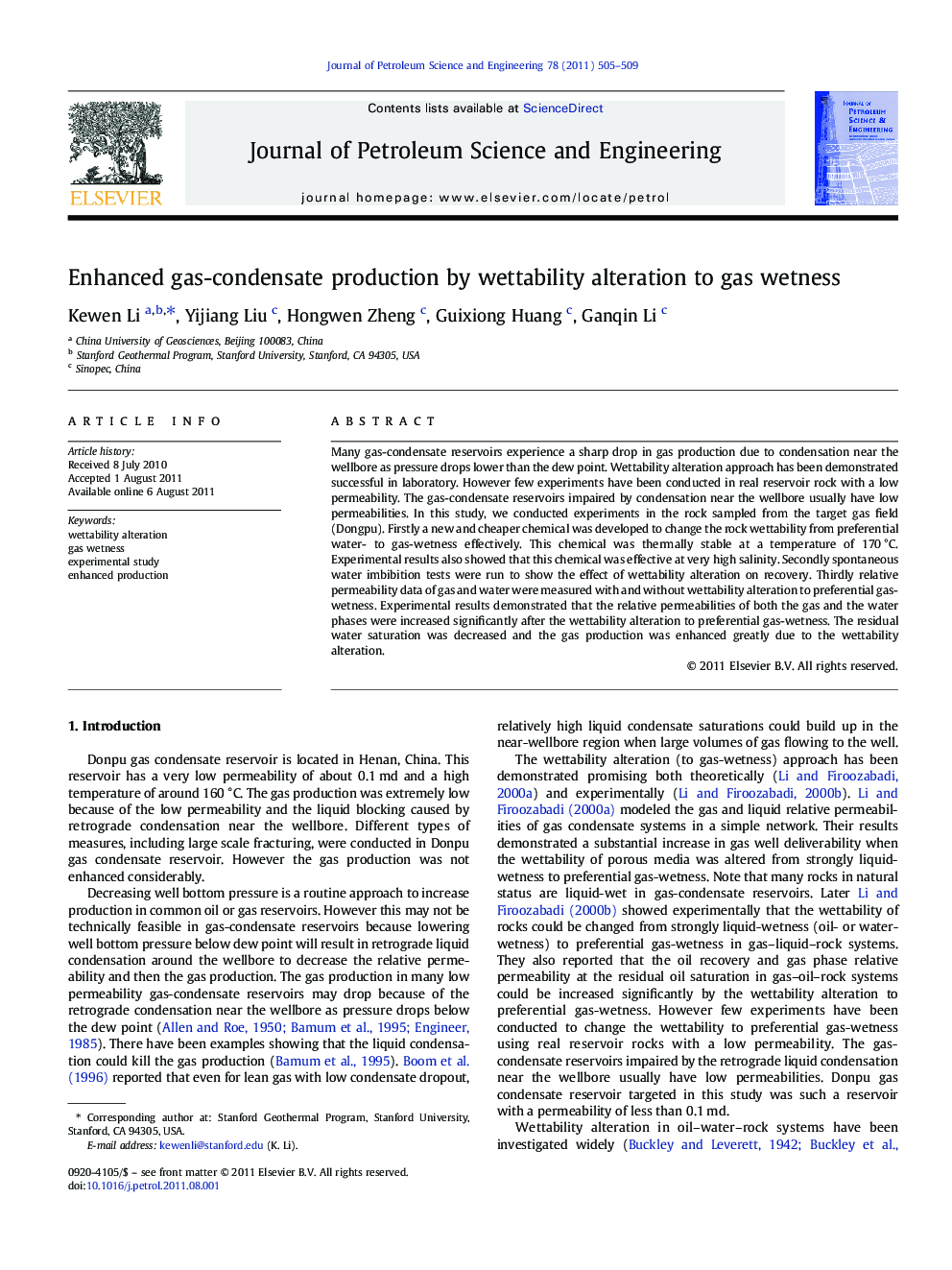| Article ID | Journal | Published Year | Pages | File Type |
|---|---|---|---|---|
| 1755652 | Journal of Petroleum Science and Engineering | 2011 | 5 Pages |
Many gas-condensate reservoirs experience a sharp drop in gas production due to condensation near the wellbore as pressure drops lower than the dew point. Wettability alteration approach has been demonstrated successful in laboratory. However few experiments have been conducted in real reservoir rock with a low permeability. The gas-condensate reservoirs impaired by condensation near the wellbore usually have low permeabilities. In this study, we conducted experiments in the rock sampled from the target gas field (Dongpu). Firstly a new and cheaper chemical was developed to change the rock wettability from preferential water- to gas-wetness effectively. This chemical was thermally stable at a temperature of 170 °C. Experimental results also showed that this chemical was effective at very high salinity. Secondly spontaneous water imbibition tests were run to show the effect of wettability alteration on recovery. Thirdly relative permeability data of gas and water were measured with and without wettability alteration to preferential gas-wetness. Experimental results demonstrated that the relative permeabilities of both the gas and the water phases were increased significantly after the wettability alteration to preferential gas-wetness. The residual water saturation was decreased and the gas production was enhanced greatly due to the wettability alteration.
► A new and cheaper chemical was developed to change the wettability from water- to gas-wetness. ► This chemical was thermally stable at a temperature of 170 °C. ► Gas production was increased significantly after the wettability alteration to gas-wetness.
